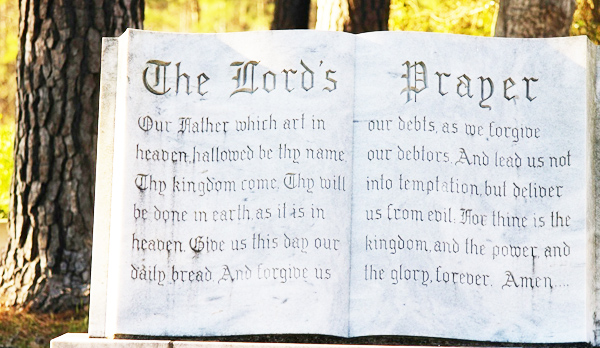Although the writing of the Bible spanned some 1,500 years and now even the most recent book of the Bible is almost 2,000 years old, the unashamed contention of historic Christianity is that the Bible is error-free from start to finish. The Bible makes numerous and uncompromising claims as to its own authenticity and divine origin (over 3,800 such claims).
How Can I Read My Bible Correctly?
Whether we are consciously aware of it or not, interpretation is part of almost every human’s daily life. Communication would not be possible without a common understanding and means of interpreting. However, even with years of practice, we can all misjudge or misinterpret someone else’s—even our own spouse’s—words, actions, or facial expressions. This danger of misinterpretation is even greater when we come to the Bible.
What Is Perspicacity (And Why Does It Matter)?
The doctrine of the “perspicuity of Scripture” is a well-known and important teaching within the Christian faith. This doctrine refers to the fact that the Bible is clear, that it communicates perfectly. All scripture is profitable (2 Timothy 3:16). The Bible can be understood by anyone, barring mental handicaps (2 Timothy 3:15). This doesn’t mean it is easy to correctly understand; rather, the Bible requires careful, thoughtful study (2 Peter 3:16). Equally vital as the doctrine of Scripture’s perspicuity, however, is the balancing consideration of the “perspicacity” of the reader.
Lead Us Not Into Temptation
Lead us not into temptation (Luke 11:4). (Today’s is the last in a brief series of meditations on the Lord’s Prayer.) James says no one can say God has tempted him; this request, then, is for God to keep us from situations where we might fall. It is a recognition of the dangerous, bait-riddled, sin-inducing nature of this world. If love of money doesn’t get us, perhaps the temptation to fit in with the crowd will.
Forgive Our Sins
Forgive us our sins (Luke 11:4). (We are continuing in our brief series of meditations on the Lord’s Prayer.) Jesus teaches us to pray daily (see previous post) for the forgiveness of our sins, assuming (as we ought to) that we have strayed from the mark each day. Sins are sins — they are not merely mistakes, flaws, personality, or “my truth versus your truth.” And every sin is against God ultimately, and so must be dealt with before God (Psalm 51:4)
Give Us Our Daily Bread
Give us each day our daily bread (Luke 11:3). (We continue today in our brief series on the Lord’s Prayer.) The opening requests that Jesus models for us are about God — so like God they are majestic, huge, and inspiring. A lesson Jesus clearly means for us to learn in this prayer is that God comes first, and only when God is first does everything else matter or fall into place. However, the following pleas that Jesus himself places in our mouth are about us — and like us they are daily, mundane, unspectacular.
Your Kingdom Come
Your kingdom come (Luke 11:2). In my last post I began a series of brief meditations on the Lord’s Prayer. The prayer begins with the request for God’s name to be hallowed, followed immediately with the prayer for his kingdom to come. When we ask for God’s kingdom to come, we are reminded that not only is God’s name and glory to come first — but also God’s desires, his will, his purposes, and his authority.
Hallowed Be Your Name
When you pray, say: “Father, hallowed be your name” (Luke 11:2). It is doubtless true that the Lord’s Prayer is routinely abused around the globe every day, mouthed by people who neither think about its meaning, nor would mean it even if they did. This is why Martin Luther referred to the Lord’s Prayer as “the greatest martyr on earth.” It is, as it were, butchered by thoughtless, soulless prayer on a daily basis. However, the other extreme, into which many evangelicals today have fallen (and it’s just as bad) is this: we have largely neglected it!
Is Church Really That Important?
Paul in Ephesians 1:23 describes the church as the body of Christ. And in Ephesians 2:20 Paul goes on to explain that Jesus Christ himself is the cornerstone of the church. As if this were not enough, Paul further insists in Ephesians 3:10 that the manifold wisdom of God is being made known, through the church, to the rulers and authorities in heavenly places. In 1 Timothy 3:15 the church is said to be “a pillar and buttress of the truth.”
That God May Be Known To Be God
A friend who has recently been reading through David Brainerd’s biography shared with me a stirring passage from Brainerd’s journal. What motivated this man — who spent years in sacrifice and service of the gospel, and eventually died an early death for the spread of it — to continue laboring in the face of excruciating pain and disappointment? The overarching, undergirding concern “that God might be known to be God in the whole earth” and that “God have the glory forever.”
What Meek Family Leadership Looks Like
I shared these thoughts at a men’s retreat a few years ago, learning from the man whom God himself commended in superlative terms for his meekness, even though he was a great leader. In fact, it is his very meekness which contributed to Moses’ great leadership. There are lessons here, then, for every leader — including in the home — so I hope these observations will be a blessing to all fathers and families:
Be Careful How You Build
“According to the grace of God given to me, like a skilled master builder I laid a foundation, and someone else is building upon it. Let each one take care how he builds upon it“ (1 Corinthians 3:10). Paul emphasizes over and over again that his labors were “according to the grace of God.” In other words, we can only do what God enables us to do. We are only as strong or skillful or successful as God’s grace working in and through us. Have we been blessed to persevere in Christian service for several years or decades? We are
Not a Pep Talk
The Spirit himself bears witness with our spirit that we are children of God (Romans 8:16). Paul is speaking here to Christian believers, to those who have trusted their past, present, and future to Jesus as their Savior and Lord. And Paul reminds Christians that the Holy Spirit within us now gives us the true witness that we are his. The Spirit, it is important for us to recognize, is not lying to us. This is not merely some pep talk that the Spirit gives us, in order to make us feel better:
God’s Thought-Exceeding Power
Paul, in the middle of a praise-hymn to God in Christ, makes the astounding claim that He is “is able to do far more abundantly than all that we ask or think,” because of the power that is working in Christian believers (Ephesians 3:20). God is able! He is able to do what we ask; he is able to do more than we think; he is able to do above all that we can ask or think. And this doesn’t just mean that God is capable of answering more prayers than we are asking; it also means he is answering
Boldness Through the Blood
“[We have] boldness to enter into the holiest by the blood of Jesus” (Hebrews 10:19). Access to the holy God who created us is the most precious commodity in the universe. So precious, in fact, that no person can afford it, can purchase it with any amount of money or sacrifice or even personal godliness. This is the lesson we are meant learn from the Old Testament sacrificial system of worship. The innermost room (the “holiest”) of the temple was where God’s presence was experienced in a special way. Yet the writer of Hebrews reminds us that there is only










